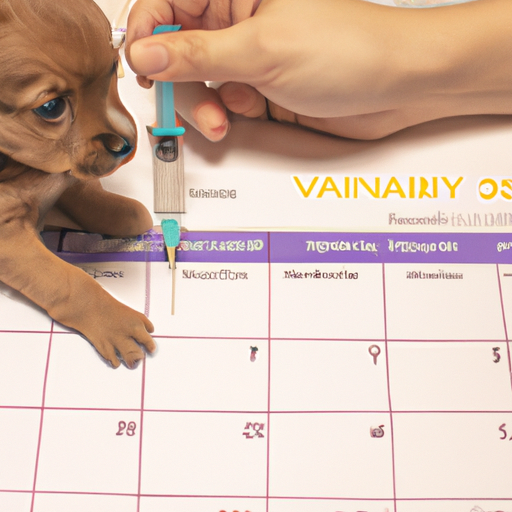“`markdown
When Do Dogs Get Their Shots?
Introduction
As a dedicated caregiver, you’re always looking out for your furry friend. One crucial aspect of taking care of your pet is ensuring they’re up-to-date with their vaccinations. This comprehensive guide will walk you through the timeline of when your dog should get their shots.
Understanding the Importance of Vaccines
Vaccines play a crucial role in your dog’s overall health. They’re designed to protect your pet from a host of diseases, some of which can be fatal.
- Core Vaccines: These are mandatory for all dogs, regardless of their lifestyle or location. They protect against diseases like rabies, distemper, parvovirus, and adenovirus.
- Non-Core Vaccines: These are optional and depend on your dog’s risk factors. They protect against diseases like Bordetella bronchiseptica, Borrelia burgdorferi and Leptospira bacteria.
Vaccination Timeline for Puppies
Puppies are particularly vulnerable to diseases, thus, it’s essential to start their vaccinations early. Here is a general timeline:
- 6-8 weeks: Distemper, parvovirus
- 10-12 weeks: DHPP (vaccines for distemper, adenovirus [hepatitis], parainfluenza, and parvovirus)
- 12-24 weeks: Rabies
- 14-16 weeks: DHPP
Remember, your vet might customize this schedule based on your puppy’s health and lifestyle needs.
Vaccination Timeline for Adult Dogs
Adult dogs also need regular vaccinations to maintain their immunity. Here’s what a typical schedule might look like:
| Age | Vaccine |
|---|---|
| 1 year | DHPP |
| 1 year | Rabies |
| Every 1-2 years | DHPP |
| Every 1-3 years | Rabies |
| Yearly | Bordetella |
Again, your vet may suggest a different schedule depending on your dog’s specific circumstances.
Potential Side Effects and Care Post-Vaccination
Post-vaccination, your dog may experience some side effects such as sluggishness, reduced appetite, or mild fever. These are normal and should disappear within a day or two. If not, see your vet immediately.
Frequently Asked Questions
Q: Can I vaccinate my own dog?
A: While it’s technically possible, it’s highly advised to let a professional do it to avoid any complications.
Q: What if my dog misses a vaccine?
A: If your dog misses a vaccine, consult with your vet. They’ll likely suggest a catch-up vaccination schedule.
Q: Are there natural alternatives to vaccinations?
A: There’s no proven natural alternative to vaccinations. Vaccines are the most effective way to protect your dog from diseases.
Remember, you’re not just a pet owner; you’re a caregiver. Staying informed and proactive about your dog’s vaccines is a key part of ensuring their health and happiness.
“`



